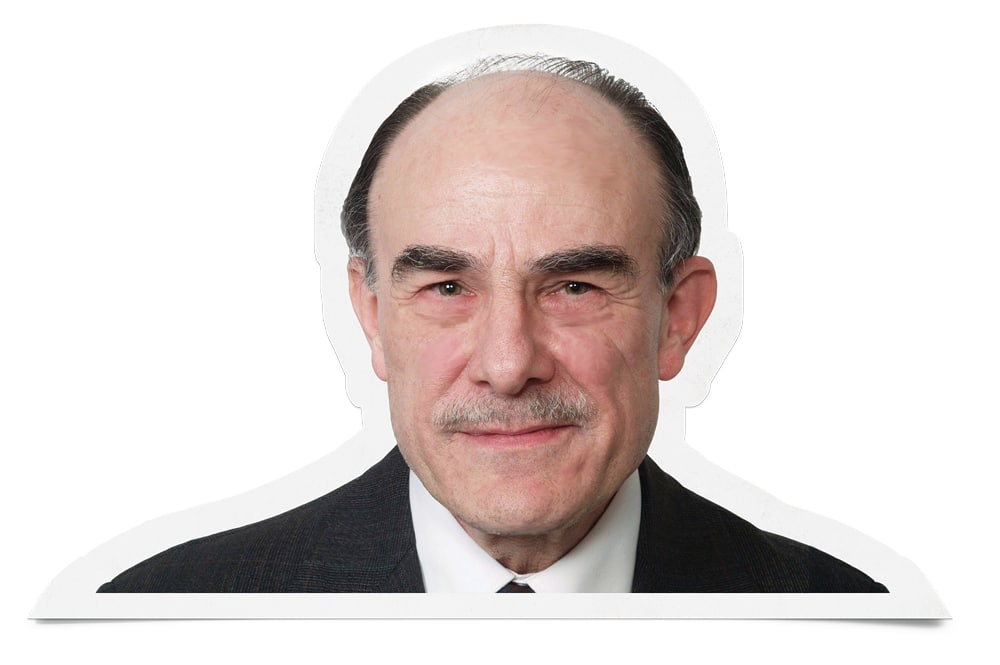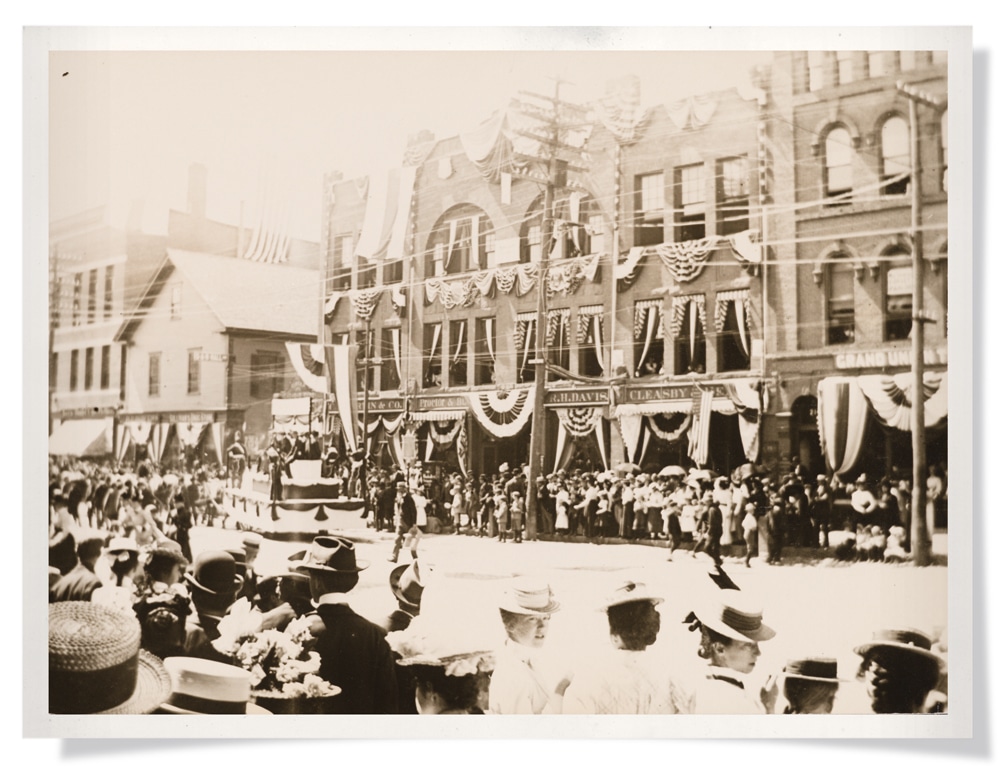Finding New Hampshire | What the National Media Doesn’t Get About the Granite State
Every four years, when New Hampshire holds the nation’s first Presidential Primary, the media descend on a state they barely know. Here’s our guide to understanding it.

Finding New Hampshire
Photo Credit : Photo Illustration by Brian Konnick
Photo Credit : Photo Illustration by Brian Konnick
On my second day in New Hampshire—35 years ago—I called the phone company to come start my service. I was calling from a phone booth. The man on the other end of the line told me I needed to make an $11 deposit. I would have to drive to the next town and leave a check at the general store.
I wrote out the $11 check and went to the general store. The man there took my check and put it in his sparsely populated cash drawer, under the tray holding the bills. I waited a beat for a receipt or some acknowledgement. None was forthcoming.
I drove back to the pay phone and called the company to tell them that I’d left the deposit. “OK,” the man said, “we’ll be there in two days.”
“Wait,” I said. “How do you know that I left the deposit?”
“Well, you said you did” was his answer. He could check, he said, but my word was good. (My word was worth at least $11. Modest, yes, but a good start.)
And that, in short, is how things have gone in New Hampshire. It’s like walking an old crooked path that proves to be the most direct route.
New Hampshire is a crooked path that often makes little sense to outsiders. What’s most important is invisible. So many things that are looked after by state or county governments in other places are here tended by towns and legions of volunteers. And these volunteers will be heard—in town meetings, in the sprawling state legislature, and in tough grassroots protests that never fold.
You can say that New Hampshire created itself by saying No. No to the Puritans in Massachusetts who claimed a great deal of the province in the early 1700s (so much that they laid out the state capital’s main street). No to a strong central government led by Seacoast aristocrats. No to many big projects, and no to an entire cranky list: no to a state income tax, no to a sales tax, no to seat belts and motorcycle helmets. What is “Live Free or Die”—the state’s motto—but just a curmudgeon yelling, Hey kid, get off my lawn?
Behind this naysaying is a vision of civic order, one that isn’t as quaint as the Vermont brand. New Hampshire is ornery—but with a purpose, I swear.
It’s a state that says no—but desperately wants you to visit and even to move here. (It’s hospitable in that New England way, welcoming newcomers by calling them flatlanders, and worse, for maybe the first 20 or 30 years they live here.) Underneath this orneriness is a history of economic failure and serious poverty. Failure is the first lesson the landscape teaches. Almost everyone has ghosts for neighbors: cellar holes from failed farms, stone walls that once edged pastures and are now left to themselves in the woods, abandoned railroad beds and bridges, ruins of mills and ruins of hard work and good intentions. Failure everywhere you look. The ghosts of this failure are always at the table. It’s why New Hampshire welcomes big economic schemes and also why sometimes it stubbornly refuses them, saying: No. We’re independent. Go away.
—
New Hampshire was born this way. “It’s astonishing, really. You go back in the record, the parsimonious and resistant attitude … that we have today starts seemingly pretty close to the beginning,” Jim Garvin told me when I met him at the New Hampshire Historical Society in Concord, where he was waiting for a board of trustees meeting to start. If reporters want to dig deeper into the idiosyncrasies of the state, Garvin is where to start. He’s been a curator at the historical society and at Strawbery Banke Museum in Portsmouth.

—Historian Jim Garvin
Photo Credit : courtesy of the New Hampshire Historical Society
For decades he was the state’s architectural historian. “Once you had the royal government created and established, there was always this loggerheads collision between the royal governor and the assembly,” Garvin said. “Saying no is our middle name.”
Garvin has looked deep into the state’s history, recently writing an extensive history of the statehouse with his wife, Donna-Belle Garvin, detailing how the big dome was built out of wood—an old barn, really—hiding beneath a golden dome. It’s a perfect metaphor. A golden dome may be required for a state capitol, but that’s as grand as it gets. An old barn is closer to the soul of this state.
New Hampshire strives to think small; that gold dome is supported by a framework of naysaying. In his 24 years as a state employee, Garvin has seen many good efforts die untimely deaths. A bill would come before the legislature, and after days of hearings they would agree that it was a fine idea but one that someone else should fund. “If somebody really wants something to happen, let them get together and make it happen by themselves,” Garvin said. “And that’s essentially what’s given birth to a very vigorous and productive nonprofit sector in New Hampshire. Also I think it springs from the fact that New Hampshire, until recently, has been a poor state.”
In the next few minutes he laid it out, a map leading the way from past to present. He said New Hampshire “went through this tremendous depression in the late 19th century and was hemorrhaging its young people after the Civil War. And the sad, very pervasive image of New Hampshire was that of a farm run by an elderly couple and an elderly hired man that had once been a prosperous 18th-century/ early-19th-century place but was now failing, and the pastures were growing back to woodlots. This led to a serious revenue problem because an abandoned farm pays no taxes. And so the revenues of towns and probably the broad revenue of the state continued to decline year by year.” Thus, he pointed out, there was no money for schools and roads. Hard times set a pattern that persists, the familiar “psychology of town meeting.” Newcomers today quickly adopt this flinty attitude, he said, even though the state today is prosperous, ranking a surprising seventh nationally for median household income, and fifth for per capita income.
New Hampshire’s history of economic failure is below the surface in the state’s homegrown holiday, Old Home Day. Governor Frank Rollins invented the holiday in 1899 to try to lure people back to depleted towns. He wanted the young people to return from Boston, New York, “the fields of the Midwest and the mining camps of Montana” and buy a summer home or at least plant some trees on Main Street. Old Home Day is an unusual holiday—it doesn’t celebrate a military victory or a president’s birthday. It’s the plea of a state growing poorer.

Photo Credit : courtesy of the New Hampshire Historical Society
“I wish that in the ear of every son and daughter of New Hampshire, in the summer days, might be heard whispered the persuasive words: Come back, come back!” Rollins wrote. “Do you not hear the call? What has become of the old home where you were born? … Do you not remember it—the old farm back among the hills, with its rambling buildings, its well-sweep casting its long shadows, the row of stiff poplar trees, the lilacs and the willows?”
Rollins rallied others to his idea, and as governor he presided over the state’s first homecoming. Each New Hampshire village issued invitations. “To former residents of Deerfield,” read one, “we offer no special attractions, but what is better than the hospitality of sincere hearts.”
The first Old Home Day celebrations were haunted by all those who had left New Hampshire. They were a festival of homesickness.
—
You’d think we’d be distant from the lamentations of 120 years ago, but we’re not. Today New Hampshire is again worried about losing its young people. The state is graying; it has the country’s second-oldest population. (The three northern New England states are the oldest and whitest in the nation.) To solve that problem, this time someone hasn’t invented a holiday but rather a new organization to recruit young professionals: Stay Work Play.
The Manchester office of Stay Work Play, where I met Will Stewart, the executive director, is done in the hip style of a tech startup: There’s an open area, where today two young women sit side by side, working at laptops, and a café next door. Stewart moved to New Hampshire from Tennessee in 2004. He is a paid professional optimist. His main sell is that New Hampshire needs to “toot our own horn,” that it has many “best-kept secrets,” and that everyone needs to work together to spread the word—which is basically the Governor Rollins line, told in the contemporary language of branding.
Stay Work Play is essentially Old Home Day rebooted: Come back! Love your native state. Invest and live here. When Stewart talks about “boomerangers”—those who grew up here, left in their 20s for Boston and New York, and now want to return to raise a family—Rollins would agree.

—Will Stewart, Executive Director of Stay Work Play
Photo Credit : courtesy of Stay Work Play NH
“If we don’t do a better job of attracting and retaining young people, we’re going to be in trouble,” Stewart said. Five or six years ago when he would ask business owners about their biggest concerns, they’d list health-care costs, energy costs, and some particular regulation or tax. “Now you ask them, ‘What are your top three concerns?’ and they’ll say workforce, workforce, workforce.” For some companies, if they don’t find young workers, “it will be a question of survival,” he said. “It’s good that everybody kind of gets it now. From the governor on down, everybody’s singing this tune.”
But how strange it is to be back here again. New Hampshire’s recent problems have come from its popularity. In the 1970s the state drew back-to-the-landers and hippies. In the 1980s the state boomed; it was the second-fastest-growing state east of the Mississippi. The unemployment rate fell below 2 percent, the population passed one million, and new arrivals outnumbered the native-born. The inevitable bust was a hard landing. Banks were mired in bad loans. Seventy-five percent of the state’s banking assets were held in what were delicately termed “troubled banks.” Economists said it was the worst recession for any region since the Great Depression. Boom and bust and bust again in each era. New Hampshire is a small boat to row when the seas get rough.
—
One of Stay Work Play’s promotional lures is to present New Hampshire as “a small state that lives large.” That slogan accidentally captures New Hampshire’s eternal dilemma: how to be a small state in a big republic, how to profit from big corporations and a big federal government and not be drowned. But just how “large” this small state should live is a question without a neat answer, and therein lie many fights over things like whether to build an oil refinery or the Seabrook Nuclear Power Plant, or whether a four-lane interstate highway should push through Franconia Notch, or whether the high-voltage transmission towers of the proposed Northern Pass should cross the North Country.
New Hampshire has been engulfed before, controlled by corporations larger than the state. Most big schemes are financed by money from elsewhere. Starting in 1845, the Boston Associates, the moneyed elite who built the textile mill cities of Lowell and Lawrence in Massachusetts, and controlled the water level of New Hampshire’s largest lake, Winnipesaukee, to power the looms almost 100 miles downstream. No one in New Hampshire had a say in what happened to the lake. By the start of the 20th century, the Boston & Maine Railroad ran the state. The B&M’s monopoly stranglehold on New England’s railroads made it all-powerful. Every candidate for governor in New Hampshire was approved first by the B&M, every bill set before the legislature was read first—or written—at the railroad’s Concord offices. There was no opposition; almost every lawyer and newspaper editor in the state was on the B&M payroll. It was difficult to find a judge who also had not been paid by the railroad. “New Hampshire,” said the crusading lawyer Louis Brandeis, “has been a state within the Boston & Maine.”
New Hampshire fights these battles over and over. It is often courting and fighting off big corporations. The state sold off 172,000 acres of the White Mountains in 1867 for about $25,000 (14.5 cents an acre or roughly $2.52 in today’s money). The “lumber kings” clear-cut the mountains. The barren mountainsides slid into the rivers; the slash caught fire. The runoff flooded the Merrimack River, shutting down the mills. The black-and-white photos of the cut-over and burned mountains look like battlefield photos of Antietam and Gettysburg. The New Hampshire Forestry Commission, powerless to stop the destruction, wrote: “All the mountain forests in New Hampshire are private property … and we have no more control over their owners’ treatment of them than we have over the condition of life on the moons of Mars.” It took an epic, decades-long reform effort to create the White Mountain National Forest we see today.
A state with a weak government and a public sector that depends on the energetic attention of volunteers is often overmatched by corporations. “Whenever you entrust stewardship to a giant corporation, you’re going to have the interests of that corporation predominate,” Garvin told me. “New Hampshire has long been subject to that kind of power. These forces step in and fill the vacuum that government has not filled.”
The prolonged, agonizing decline of the big mills and the railroad smothered the state for decades. Theirs was a long, wheezy death.
—
Entwined with all the primary showboating and lotto ticket economics is a part of New Hampshire that’s as solid as granite, that abides. It’s the state that is run by volunteers—call New Hampshire the ad hoc, come-as-you-are amateur hour of civics. This is the New Hampshire that’s invisible to the horde of reporters, and sometimes even to those of us who live here.
I have spoken to visitors from big states who are vexed by this invisibility. Surely, they say, everything requires a state agency and a raft of new laws. That’s often the right solution for their state, but New Hampshire proceeds cautiously. Poverty formed its outlook, and an allergy to taxes is the state religion. So volunteers will take on some huge tasks. A bunch of neighbors will form a committee to see how they can solve the problem at hand without raising more than a few thousand dollars.
This is how things really work in small towns. People get together, figure things out, and walk the crooked path to a solution. “Social capital” is what the political scientists call this kind of neighborly involvement. Social capital is under siege by almost any trend you can name. A survey of New Hampshire’s 20-to-40-year-olds by Stay Work Play found that 21 percent didn’t have a single friend living nearby. But neighborliness is not extinguished yet. When I was a census taker in 2010, one thing that struck me was that each time I came across a very old person who seemed to be on their own, I’d learn that the neighbors were helping out. They’d plow the driveway, drop off leftovers, run a few errands—things that wove their neighbor just a little bit more into the life of the community.
—
A couple of years ago I was in the North Country—that part of New Hampshire that points like a finger into Canada—talking to people who were fighting Northern Pass, a huge power line project that would rip across the land. I talked to a state representative who was getting off his tractor after trying a new brush hog, to a doctor who was out in the woods building a new springhouse for his well, and to a dairy farmer who took pride in showing me around his hundreds of acres. Only later, thinking it over, did I realize I’d spent a day meeting people whose homes were imperiled by a huge corporation, and all of them were happy. They loved their lives; they loved the North Country. They were an advertisement for Thomas Jefferson’s “pursuit of happiness.” They were independent; they were ready to help their neighbors. They’d gone to Concord many times to meet with the governor and testify before the legislature. They saw how their acres joined with thousands of other acres in the North Country. They saw themselves holding their land for children and grandchildren. They took the long view—and they won, defeating the Northern Pass project after eight years of hard work. They were stewards, although no one used that word.
Even if we never ask whether people move to a new state (or stay put) in “pursuit of happiness,” that’s the main occupation of every American. Craig Thompson moved to Harrisville, New Hampshire, eight years ago with his partner, Sarah Heffron, and the first of their two children, and he’s already a state representative. He grew up in Pennsylvania with mountains, which he missed when they lived in South Carolina, where everything was flat.
“When I first visited Harrisville, I fell in love with the Monadnock Region,” he said of the southwestern corner of the state. “I knew immediately that I was going to invest in the community, raise a family, and spend my life here. We live in the best little corner of the planet there is.” They’d been in their house less than 24 hours before a neighbor stopped by with fresh bread to welcome them to town.
With a broad smile and a disarming optimism, Thompson told me about buying Mayfair Farm. They set up a farm stand, a kitchen, and a catering business. Today they host weddings and banquets. They cut hay on 30 acres, and draw visitors with raspberries, blueberries, apples, and meat from heritage pig and lamb breeds. Thompson and Heffron do all this despite the ghosts of failed farms. When they were getting their orchard going, they sought out the advice of an orchard specialist. “We’re looking around,” Thompson recalled, “and he said, ‘Craig, this is the soil that made men move west.’”

—State Representative Craig Thompson
Photo Credit : Lori Pedrick
Thompson stepped right into town politics, serving briefly on the planning board, learning firsthand “how much every town is run by itself. That is something you don’t find in other parts of the world by any stretch of the imagination.” He went on to win a seat in the House of Representatives, joining the largest state legislature in the country, the state’s volunteer ethos carried all the way to the top (a New Hampshire legislator’s salary is just $100 a year).
“You can have an impact in New Hampshire. It’s because of the size of the towns and the accessibility of the state legislature. I mean, goodness, there’s 400 of us, you know? You can’t walk very far without bumping into somebody who has served or is serving,” Thompson said.
But this reliance on volunteers and towns has serious limits. All that naysaying piles up. “We have schoolteachers whose pay, when you factor in the cost of living, ranks 39th in the nation,” he said. “Now either we value education or we don’t. Our university system ranks 50th in what the state spends. This leads to another statistic: We rank number one in the percentage of high school students who go to college out of state, and it concerns me that once the kid goes to school somewhere else, they don’t come back. Number one.”
He thinks we should spend a little more, and tax so that the burden is more fairly distributed. He doesn’t advocate for an income tax, but he’d like to see the 9 percent rooms and meals tax extended to more activities and a low sales tax on some luxury goods.
We spent the rest of our time discussing taxes like two students in a science lab trying to calibrate a scale. How do you spend more on education or drug treatment without tipping over the state’s religious devotion to small government? Can New Hampshire adapt to these big challenges?
—
New Hampshire is 94 percent white, like Vermont and Maine. “If you look at where we’re heading the next 20 or 30 years,” said JerriAnne Boggis, executive director of the Black Heritage Trail of New Hampshire, “we’re going to have a larger qualified workforce of people of color vying for positions all over our country. If we are not an inclusive environment, where is our workforce going to come from?”

—JerriAnne Boggis, executive director of the Black Heritage Trail of New Hampshire
Photo Credit : courtesy of the Black Heritage Trail of New Hampshire
Boggis was part of a large group that met in 2018 to talk about encouraging diversity in a very white state. Will Arvelo, the state’s director of economic development, convened the meeting of 100 government officials and business and cultural leaders. Boggis was “pumped” afterward, telling The New York Times, “It’s not just the social justice groups that are doing this…. We’re talking about the economic engine of our state, and we can’t move forward without [the businesses].”
This classic New Hampshire approach—you meet with neighbors to try to take care of things—may represent the first attempt in the nation to diversify an entire state. But you have to take the long view, said Boggis. “You’re planting for the next generation. New Hampshire has an opportunity to really be a model in how we honor our heritage, how we honor our black history, how we honor our slave history. We’re a small state, but we have a mighty voice.”
Boggis, who came from Jamaica 37 years ago to attend college, has helped New Hampshire see its forgotten history. In Milford, where she lives, she has ensured that Harriet E. Wilson is recognized as the first African-American woman to write a novel: Our Nig: Or, Sketches from the Life of a Free Black, published in 1859. There’s now a statue of Wilson in the town’s Bicentennial Park. And in Portsmouth, Boggis was part of the effort to commemorate the African Burying Ground, which had been forgotten until one day in 2003 when workers accidentally dug up decayed wooden coffins under Chestnut Street. It’s now New England’s only archaeologically authenticated 18th-century African burial ground.
The Black Heritage Trail leads through many places, small towns that had no idea that people of color once lived there. There’s an African burying ground in Warner, for example, and in Canaan there’s the site of one of the nation’s first integrated schools, which in 1835 was dragged off its foundation by an angry mob. Seeing what African-Americans went through is a way of changing stereotypes, Boggis said. “You start looking at their accomplishments, you start looking at what they were able to do in their time, and you go, wow, that’s the hero’s journey.”
—
New Hampshire, it’s been said, is made up of 234 independent swamp-brush republics. Each town is left largely to itself, as is each region. The Seacoast lives a life apart from the North Country or the Upper Valley. The Monadnock Region is the wallflower at the dance. In Nashua and Manchester, commuters are in Boston’s orbit, while up in Colebrook, in the Great North Woods, Canada is next door. It’s been like this since the formative years, when 36 towns on the Connecticut River tried to leave for Vermont in 1782 rather than face the tyranny of wealthy Portsmouth merchants. A ridge-backed localism lives in the state.
It’s this localism that gives the presidential primary its ideal form: The candidates come calling in living rooms, meetinghouses, school gyms, and diners—always diners, because real voters eat hash browns. Carlos Cardona, a 29-year-old Laconia Democrat, caught the attention of The Washington Post last summer for having lured 15 presidential candidates to his old mill town, hosting nine of them at his house. The average citizen can jump in. Campaigns actively seek “early adopters” (to use the tech term). You can stand toe-to-toe with the next president and the soon-to-be also-rans. It’s like seeing the Wizard of Oz before he steps behind the curtain to become the great oracle.
After this up-close-and-personal phase, the primary becomes more and more moneyball politics, with a flood of TV ads and opinion polls. In New Hampshire the primary is both a sport and an industry that no one in public life dare criticize—if you do, Secretary of State William Gardner, who for 43 years has defended going first, will make sure that voters know.
The primary adjusts to the many different New Hampshires. The state is rural and urban and suburban. It’s small-town and sprawl. It’s places that often have little to say to each other. They are keenly aware of this in the North Country, often misunderstood by those from “below the Notches.” People don’t grasp “the sense of scale up here,” said Chris Thayer, director of North Country programs and outreach for the Appalachian Mountain Club. They don’t realize that you can hit Franconia Notch and still drive north about two and a half hours before you leave the state. And they think it’s all moose and closed paper mills. “You glom on to the stories of trials and tribulations of the timber industry, pulp and paper: Oh, everything is sad in the North Country,” he said. But “there are also incredible bright spots of why people live here. There is life north of the Notches. There are businesses, there are schools, there are kids getting on the school bus. Not just moose walking across the road. People are growing up and experiencing rural living. For folks below the Notches, it can be somewhat mythical in that respect.” It’s a place where kids will run home after school to get to their favorite fishing hole. But it’s also a place where only 5 percent of the high school graduates will stay.
The North Country exists as a double exposure: the state’s old poor days living alongside something new. The North Country has many dissolving landscapes—fallen-in farm buildings, abandoned motor court cottages from the First Motor Age, commercial strips that are sketchy and stunted. There’s something that’s passing up north—many things actually, like industry, farming, and early tourism—and something not yet arrived.
Liz Jackson and her friend Jason Hunter are two people who are working to arrive at that new economy and transform Gorham. We sat down at Libby’s Bistro, the restaurant that Jackson started 22 years ago. When she first opened, “our credit cards were so maxed out I didn’t have the money to buy a gallon of paint,” said Jackson. She had no investors. She resorted to “dumpster decorating. You know, whatever I could find in my mother’s basement or whatever someone was throwing on the street, we would figure out a way to turn it into something cool. And then when we opened, these people are like, ‘Oh my gosh, who did the decorating? This place is fabulous.’”
Winters are slow in Gorham, and they were especially slow for a new restaurant. Without her knowledge, her friends started calling others: You have to eat here or we’re going to lose this. Libby’s is now a prime gathering spot; her regular customers have become her friends. Some are even at her house on Christmas Eve. “We’re very welcoming of new people,” she said.
She grew up in Gorham, the third generation in town. She left, worked for Julia Child, and moved back with her husband when she was 32. They wanted to raise their kids with her parents, and she missed life in a town near New England’s biggest mountains.
Jason Hunter grew up in southern New Hampshire and came north to work at the Appalachian Mountain Club, where he met his future wife, Kara, who is also from below the Notches. They’ve been building their dream business, HubNorth. They bought an old Girl Scout camp and converted it for “glamping.” (“We don’t really love the word, just because it’s sort of dorky in a way, but it works,” said Hunter.) They also run a construction company, and he spends 20 hours a week keeping a mountain bike club going, a hungry group that often ends up at Libby’s. He and Kara, too, have built their businesses from the ground up, “using what we can afford and making do.”
Jackson and Hunter wish more people in town were willing to take risks. “There aren’t a lot of entrepreneurs out there,” said Jackson. “You have to have a different personality that’s going to say, ‘I might not get a paycheck this week.’ My husband supported us while I lived without a paycheck for a year. That is not an option for most people.”
She has mentored people, offering reduced rent for her upstairs space and use of her kitchen, trying “to make it so it’s almost like you’re not going to fail and you can ride off my coattails, in a way. Right? But it’s difficult to find people comfortable with taking even that chance.”
Not long ago the economy offered a different kind of risk: You bet it all on one employer. You showed up at the paper mill and worked hard; the bosses looked after everything else. Gorham has the North Country’s lone paper mill—all the others are gone. When a mill closes, everything falls out of its orbit. People feel that their work of the past 30 or so years, their parents’, their grandparents’ work, maybe hasn’t come to anything. But in today’s economy, the kind of devotion that kept the mills going isn’t enough.
To some extent there’s “a lack of confidence in the community itself,” said Hunter. People doubt the town will support their business. “But it’s crazy. Look how many cars are driving by. It’s a lot of traffic. So if you’re on Main Street or anywhere close, you’re going to succeed as long as you go all in.”
What’s needed is specialization, offering something no one else has, said Jackson. “For 10 years I’ve been saying every town in New Hampshire just needs one beer, one bread, and one cheese that they call their own. That’s all I’m asking. And do you think in my own town I could even get that going? I can’t even get one beer, one bread, and one cheese—not yet.”
That’s a great rallying cry, one that plays to a heritage of stubborn localism.
Hunter and Jackson continued to discuss Gorham’s prospects—why isn’t more happening? It was a spirited back-and-forth over a well-traveled route. They’ve been discussing this for years. “We’re a work in progress is really what it is,” said Hunter. The North Country is in recovery and things are happening very slowly, he said.

—Liz Jackson, Chef-owner of Libby’s Bistro in Gorham
Photo Credit : Joe Klementovich
We’re living in a time after the fall of the old industrial order, and now the corporate model is fraying, giving way to a patchy gig economy: Everyone for themselves, job by job. The old mill town deal—show up, put in an honest day’s labor, and you’re guaranteed a paycheck for life—is no more. As we’re ever more free, life is more uncertain.
They’ve tried a lot of things to revive the North Country. It’s been a long search. “The first New England was a church; the second New England is to be a factory,” said Joseph Cook in 1877. And the third New England? That’s been up for grabs for years since the factories failed. Different answers have promised salvation. Is it the knowledge economy—colleges and high tech? Is it the arts and luring “the creative class”? Or is it the experience economy, selling whitewater kayaking and mountain biking the way Apple sells phones, as one sleek product? We haven’t settled on a name yet. We’re trying to invent it every day. Perhaps it’s “one beer, one bread, one cheese.”
New Hampshire will find an angle that is a bit odd and a bit ornery. And this, finally, is what New Hampshire knows: how to make your way as a very small state in a big country and get what you want. Set up shop on stony soils, outmaneuver those pushy Massachusetts Puritans, try and fail at farming and running mills. Pray that skiing and leaf peeping and liquor and lotto tickets will bring in tourists. Set up the thinnest government you can get away with, and maybe it works for a while. For many years the state has prospered. But in each generation, New Hampshire is asking the same question: How do I get you to come back, to stay, to work, to play? This will be the case as long as there’s a New Hampshire.


